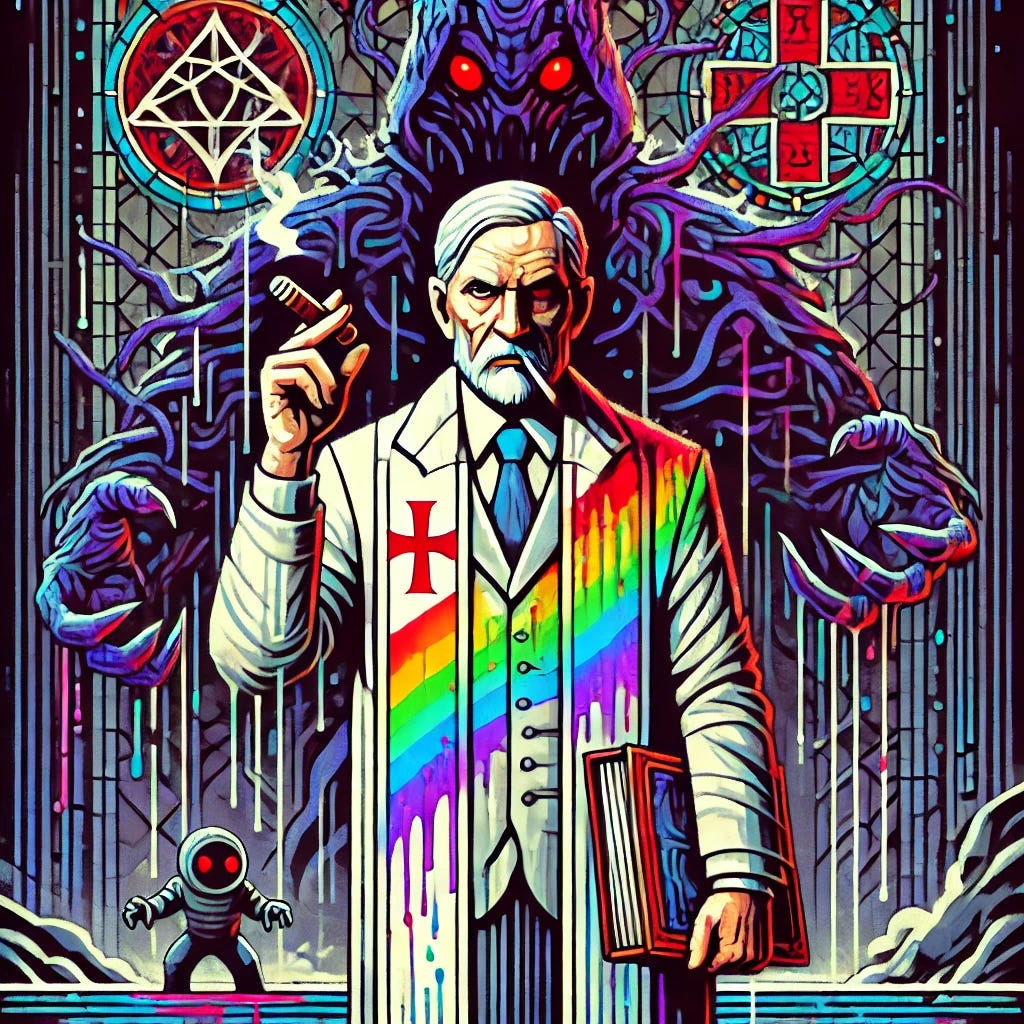ZIklag 12.9 - Obsession
with Purity is the Nature of Religion
Let’s call it like it is: all religions are purity cults, no exceptions. They all deal with the same fundamental question—how to get clean, how to remove the dirt, whether it’s physical, moral, or spiritual, and align with whatever they see as divine or transcendent. That’s the game they’re all playing. The difference is in the how—and that’s where Christianity flips the script completely.
At the heart of every religion is this obsession with purity. It’s not just about following rules or doing rituals. It’s about something deeper—the sense that humanity is defiled and needs cleansing to get right with the divine. Every faith has its answer. Judaism says it’s in the Law. Hinduism talks about dharma. Buddhism looks for liberation through detachment. Islam has its submission and rules. But here’s the thing: all of them make the same fundamental error—they put the burden on you to climb the ladder, clean yourself up, and make yourself acceptable.
Now, let’s get into the details. Most religions look outside, to rituals or practices, as the pathway to purity. Some look inward, to meditation or enlightenment. But in every case, the purity they’re chasing is either something they think they can achieve themselves or something so vague and mystical it’s out of reach. They might dress it up with different names, but at the end of the day, it’s all human effort, and it always falls short.
Christianity is different. Radically different. It doesn’t play the same game because it doesn’t see purity as something we can ever achieve. The whole idea of the Logos—God’s Word, God’s Logic, the reason behind everything—is what sets Christianity apart. John lays it out perfectly: “In the beginning was the Word, and the Word was with God, and the Word was God… The Word became flesh and dwelt among us.”
Think about that. The source of all purity didn’t sit back and demand we work our way up to Him. He came down to us, took on flesh, and lived among us. He is purity—untouched by sin, the exact imprint of God’s nature—and He didn’t just point the way; He is the way. Every other religion says, “Here’s what you have to do.” Christianity says, “Here’s what’s been done for you.”
Purity in Christianity isn’t about your rituals or your enlightenment. It’s about Him. It’s about faith in the Logos who stepped into our brokenness to bring us back to God.
Faith: The Witness to True Purity
So how do we connect with this purity? Through faith. But let’s be clear—faith isn’t just intellectual agreement, and it’s not some vague, feel-good belief. Faith is trust. It’s saying, “I believe the Logos is who He says He is, and I’m staking my life on it.”
Faith is the battlefield. On one side, you’ve got the witness of God, who says, “This is My Son, in whom I’m well pleased.” On the other, you’ve got the accuser—the world, the flesh, the devil—all trying to twist the definition of purity, either making it impossible to attain or so meaningless it doesn’t matter. Faith stands in the middle, rejecting the lies and grabbing hold of the truth.
Here’s the kicker: faith isn’t something we do to earn purity. It’s how we receive it. The Logos doesn’t just define purity; He gives it to us. That’s grace. That’s Christianity.
The bottom line is that every religion is chasing purity, but Christianity is the only one that reverses the order of the chase. It doesn’t rely on your efforts, your rituals, or your mystical experiences. It points to the Logos—Jesus Christ—the source and definition of all purity, who is fishing with his Words for you.
When you align yourself with Him through faith, that is, when you trust in him, momentarily, actively, ongoingly, you’re not just aiming for purity; you’re receiving it: as a gift.
That’s why and how Christianity delivers. Anything else is just an animalistic purity cult.



